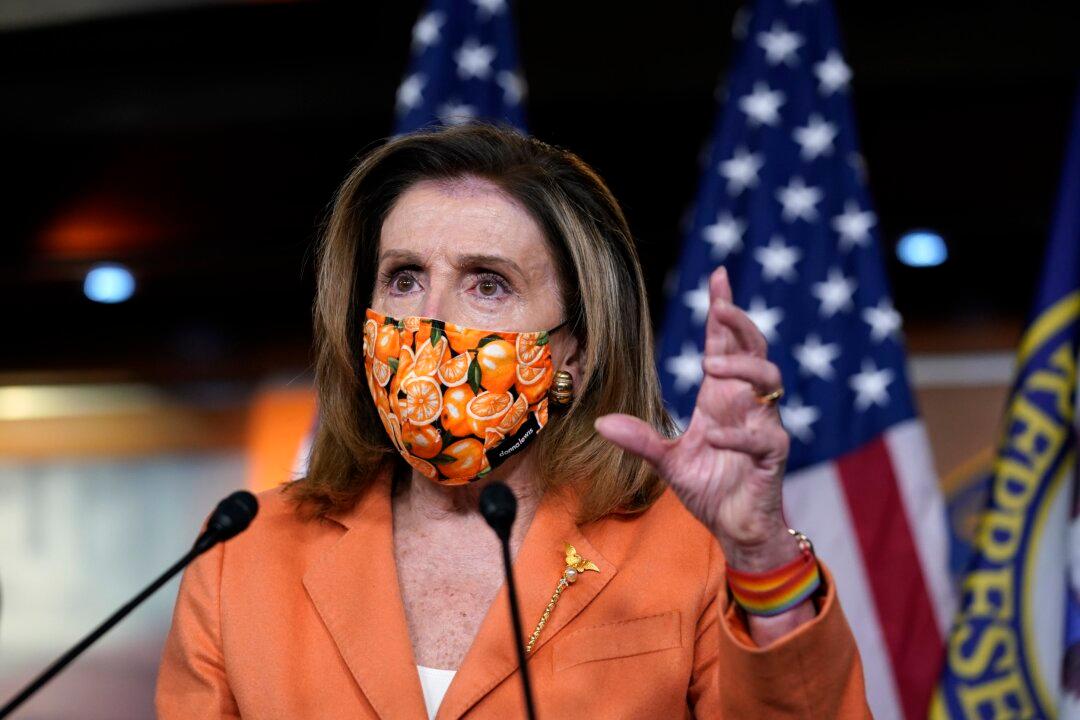At a weekly press conference Wednesday morning, Speaker of the House Nancy Pelosi (D-Calif.) criticized social media giants like Twitter and Facebook for allowing content from the Taliban terrorist organization on their platforms.
An audience member asked about this situation in the midst of reports that videos of women being beaten by Taliban terrorists were being shared on the platform. This comes as the group, once a minor insurgency in Afghanistan, moves to take complete control of the government and people of the nation in the wake of the controversial U.S. withdrawal from the country.





